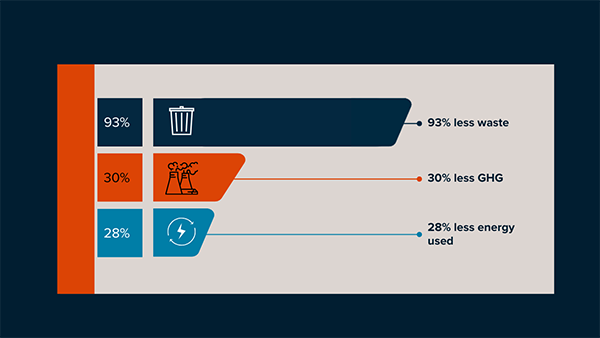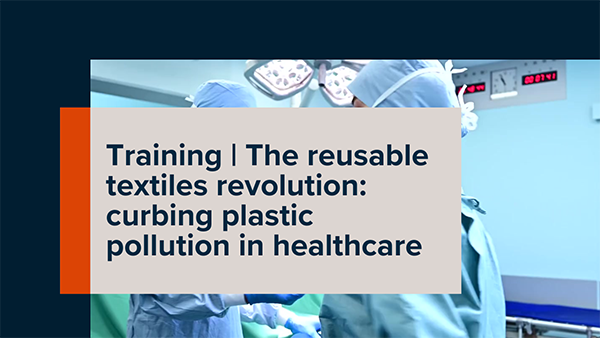On World Environment Day 2025, Health Care Without Harm launches its new online course and tool, designed to support health care institutions worldwide in adopting more sustainable medical textiles. Aligned with this year’s theme, “Beat Plastic Pollution”, this initiative provides the health care sector with tools and resources to evaluate opportunities for substituting textile products with more sustainable alternatives. This new online course is free and available members of the GGHH network.
Health care generates significant plastic waste, with medical textiles such as gowns, aprons, and masks being major contributors. Most of these items are made from non-recyclable materials, yet safe and effective reusable alternatives are already used in hospitals worldwide.

To support the transition to sustainable medical textiles, Health Care Without Harm has developed the Reusable Textiles Revolution online training and tool. This initiative is part of a two-year project, made possible through collaboration with the Norwegian Retailers' Environment Fund, aiming to transform the health care sector into a sustainable textile production and consumption model.
This free, self-paced course equips health care professionals and procurement teams with the knowledge and tools to replace single-use medical textiles with reusable options. Participants will gain hands-on experience with the Medical Textiles Tool, a resource designed to help hospitals audit textile product use, evaluate alternative procurement options, and implement sustainable solutions that reduce plastics consumption, waste, and costs. The course also provides insights into developing plastic reduction strategies, navigating sustainable procurement, and driving transformation in the medical textiles market.
Join the Reusable Textiles Revolution online training and gain the essential knowledge and resources to drive sustainable change in the health sector. Learn more.
"By adopting reusable alternatives for medical textiles, hospitals worldwide can achieve substantial environmental benefits. Transitioning to reusable gowns, aprons, and drapes reduces single-use plastic production, minimizes waste, and prevents environmental pollution throughout its lifecycle. We are thrilled to launch this course to guide and support health care providers in adopting the waste hierarchy with a special focus on medical textiles," says Ruth Stringer, Health Care Without Harm’s Science and Policy Coordinator.

The Reusable Textiles Revolution training consists of 17 comprehensive classes covering key topics such as the role of chemistry in sustainable medical textiles, circularity in health care supply chains, and strategies for sustainable procurement. It also features case studies from hospitals in Brazil, Colombia, the Philippines, and the United Kingdom, highlighting institutions that have successfully implemented reusable medical textiles.
This free course requires no membership, making it accessible to all health care professionals, procurement teams, and sustainability advocates committed to reducing plastic pollution in the health sector. Upon completing all sessions and required surveys, participants will receive a certificate recognizing their commitment to environmental sustainability in health care.

